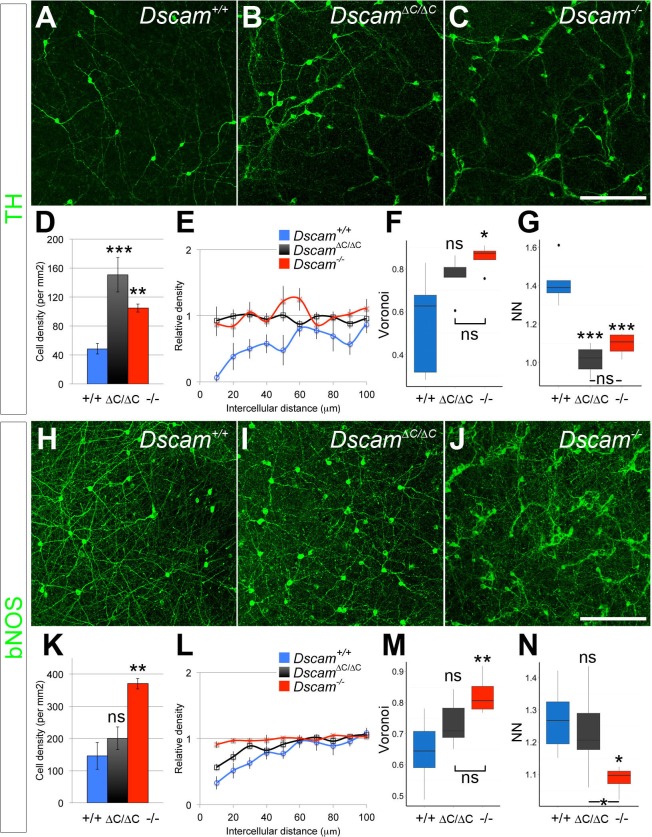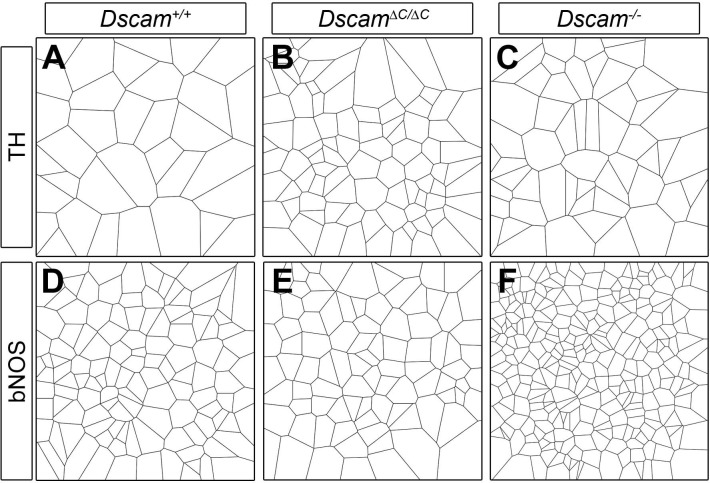Figure 2. DSCAM-mediated self-avoidance requires C-terminal interactions in only some amacrine cell types.
(A–C) Dopaminergic amacrine cells (stained for tyrosine hydroxylase, TH) are non-randomly spaced in wild type retinas (A), but lose mosaic spacing and form neurite fascicles in two-week old Dscam∆C/∆C (B) and Dscam-/- (C) retinas. (D) In both mutants, there was a significant increase in cell density. Spacing was quantified by DRP analysis; relative cell densities normalized to the overall density at increasing distances from reference cells are plotted in (E). By Voronoi (F) and nearest neighbor (G) analyses spacing in Dscam∆C/∆C retinas was not significantly different than in Dscam-/- animals. (H–J) Conversely, bNOS-positive amacrine cells were not visibly different between controls (H) and Dscam∆C/∆C retinas (I) despite clear fasciculation and loss of mosaic spacing in Dscam-/- mice (J). Dscam∆C/∆C values were intermediate between control and Dscam∆C/∆C in cell density (K), DRP (L), Voronoi (M), and nearest neighbor (N) analyses, but differences from control were not statistically significant. Means ± s.e.m. are represented in D–E, K–L. Box plots represent the median, first and third quartile, range, and outliers. N = 4–8 retinas per genotype. *p<0.05; **p<0.01; ***p<0.001; n.s. is not significant by Tukey post-hoc test between indicated genotypes or compared to controls. Scale bar is 100 µm. Representative Voronoi domains are in Figure 2—figure supplement 1.


